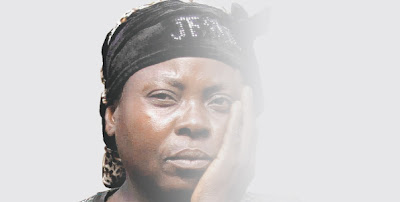Today's Daily Nation (Nairobi) has an article on African women and rape.
- "This year Africa provided the setting for two shocking mass rape incidents in the Democratic Republic of Congo (DRC). In July and August, 242 rape incidents were reported in and around a village called Luvungi, although that figure is now believed to be closer to 500. Again, the UN has recently announced that throughout September and October, an estimated 600 individuals had been raped along the Congo-Angola border. These figures are a dreadful reminder of the ways in which women’s bodies have been used as another battleground, and rape a weapon of terror."
- Rape is an act of terror. It is also thought that raping a virgin will "cure" HIV. And, it's a form of domestic violence.
- "Rape is prevalent in conflict and situations of socio-economic instability, making it an increasingly common occurrence in Africa. According to Interpol, South Africa has the highest number of declared rapes in the world, with nearly half of the victims younger than 18. Gang rapes are also common in the country, and the crime is said to be a form of ‘male bonding’ between teens. In 2009, a nationwide survey was conducted by the country’s Medical Research Council in which one in four men questioned said they had raped someone."
- One South African doctor invented the Rape-aXe - a female condom with teeth - to thwart rapists.
- "In South Africa in 2006, there were close to 55,000 reported rape cases."
- South African men, over the centuries, have been socialised into forms of masculinity. "Men are meant to be strong and tough and the use of force to assert dominance and control over women, as well as other men, is seen as the norm."
- "In Kenya, earlier this year, Amnesty International released a report titled ‘Insecurity and Indignity: Women’s Experiences in the Slums of Nairobi, Kenya’. It emerged that women living in slums were so afraid to leave their homes that they would avoid using communal toilet facilities because of the fear of being raped." (See the report here.)
- "The Lord's Resistance Army" has raped many women. "Since late 2008, the United Nations has estimated that the LRA has abducted more than 2,000 people. Rebel activity has also led to the premature marriage of young girls in Uganda since marriage is now regarded as way to avoid abduction — you may still be raped, but the chances are you will be left at home."
- "In some African countries, rape is associated with a ritual or belief. In Ghana and some parts of Nigeria, for example, a type of slavery exists known as Trokosi — the literal meaning of this is wives are slaves to the gods. The ‘Trokosi Tradition’, as it’s formally called, is a practice whereby families give their young girls to the village priests to ‘atone’ for the sins committed by family members. If a girl is not available, boys or adults are sometimes, although rarely, used. The girls can stay with a priest for years and sexual exploitation is standard practice. The terror of rape is very real in Africa, and the horror of the act cannot be redressed under slogans of beliefs."
